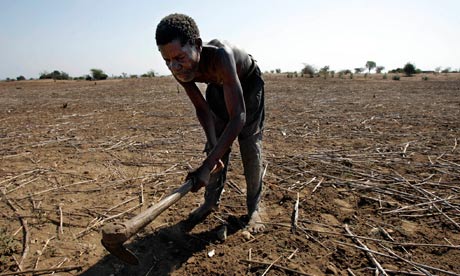The UK’s interest in Malawi’s elections is two-fold. We believe in democratic systems and the fundamental right of everyone to freely choose their leaders. We believe this contributes to a global society based on freedoms and democracy, sustaining stability and economic growth. As a long-term partner of Malawi, we believe that elections are integral to Malawi’s democracy and therefore its economic and political development. It is in our interests to support that, if we are to move gradually from aid to trade and enhance the ability of Malawi to offer even more to our partnership.
People will have their own opinion on how the elections were conducted. What I would ask is that they make an objective assessment.
There are many positives to consider: this was one of the most peaceful elections in Malawi’s history, although the three election-related deaths incurred are three too many; there was much less mud-slinging among candidates and parties and instead a greater emphasis by the parties on issues -based campaigning.
Zodiak Broadcasting launched with the High Commission the ground-breaking Question Time Malawi. Question Time Malawi paved the way for the plethora of debates that followed, which was the intention, including the first-ever presidential debates.
Clearly there is a thirst for policy discussion by an ever more sophisticated Malawi electorate wanting to hold their leaders to account.
MBC too opened up, if belatedly, and I want to pay tribute to Benson Tembo, who suffered personally in his quest as Director General to promote an MBC that projects more than one-sided government news – I trust that Benson and MBC’s editorial independence will continue under this government. I particularly noted and greatly welcome H.E. The President’s commitment in his inauguration speech that “the era of the public broadcaster for political mileage is gone”.
There are other positive aspects: this electoral process was one of the most transparent in Malawi’s history; the Malawi people were able to vote freely; the counting of votes was conducted openly with much oversight by the widespread deployment of observers and monitors; and this election witnessed the lowest number of null and void ballots in Malawi electoral history.
I do not believe the infamous computer system was hacked, although it did not perhaps sufficiently take in to account human behaviour in needing adherence to ensuring 800 people maximum in polling lines. It did however act as a safeguard by highlighting instances where figures did not add up on tally sheets, allowing further investigation. Each polling centre’s returns were scrutinised, and political parties had the opportunity to review the tally sheets.
And there are many people who deserve praise: the polling staff who delivered in sometimes difficult circumstances, working long hours with good grace and humour, replicated at the national tally centre by the MEC staff; the UNDP technical staff who worked alongside the MEC providing crucial advice; and the security authorities who were able to quickly contain sporadic incidents of violence on the day. Most of all, highlighted by international observers and media, the immense patience of the Malawi people who demonstrated their resilience and determination to vote.
Of course there were anomalies and complaints and it was only right that MEC were required to investigate and respond to these. The questions that people might ask in judging the electoral process are whether the anomalies were significant enough to alter the results; what is the national perspective across 4500 polling centres; were the anomalies explainable, such as simple errors of arithmetic; were the allegations of rigging feasible and credible? I have no doubt there were many basic mistakes and anomalies. There may even have been some underhand examples of manipulating results, although they seem to be very few. That needs to be stopped in future, as every vote should count. And there is still the option of going to court to decide individual complaints if there is continued dissatisfaction with MEC’s decisions.
I do not believe that MEC was given sufficient time and space to investigate complaints. Too quickly were they pressured in to agreeing to a recount, instead of relying on their perfectly valid complaints mechanism. This cost time, expense and added tension.
But the key word in all of this is “perspective”.
Taking the process and results holistically, across 4500 polling centres, and once errors were accounted for and explained, is there evidence of systematic rigging as claimed that affected the overall results? Or did a number of anomalies become inflated to be translated as widespread rigging? The MEC in some of their media conferences did not help, sometimes being too loose in their language to describe the anomalies brought to their attention, and giving the wrong impression, thereby undermining their own institution unnecessarily.
As I say, people will have their own views. The UK can only go on the evidence we have in making our assessment. That includes local and international observer preliminary reports, analysis of the evidence provided in complaints, and the parallel vote tabulation conducted by MESN – a scientific method that has proven internationally sound in many countries.
The PVT in particular pointed to good conformity with the process and matched MEC’s results. We therefore have no reason to cast doubt on the conclusion of the MEC Chair, and that of others, that the process was credible and transparent and that the results seem to reflect the will of the people, despite some obvious administrative failings.
I know this may not be the view of everyone. But there is another positive, even where there is disagreement. The reaction of acceptance to MEC’s announcement of results brought great credit to the leaders of the (now) opposition parties and to the Malawi nation internationally. And, crucially, it demonstrated respect for the rule of law upon which every democratic country must base itself. To those who did not win, I would point out that democracy is about more than elections and there is still a crucial role to play inside and outside of parliament in providing checks and balances.
There is much to learn from these elections and I encourage reform while that learning is still fresh in people’s minds: perhaps consider investing in the 5 year elections cycle, rather than just the last few months leading up to an election; ensure there is confidence that the leadership of the MEC secretariat is competent and professional enough to deliver; whether the current process of political parties nominating Commissioners, rather than an openly recruited group of professional Commissioners, is the best way forward.
The electoral law and regulations too could be reviewed quickly, to remove the grey areas that can weaken the process or be exploited, and to strengthen legitimacy; laws on party and campaign financing among others might be considered. And the low number of women elected to political office – for example, only 30 out of 192 MPs – should be of concern to all.
There might also be consideration of MEC funding: it needs dedicated funding over a 5 year cycle, not just in the last months before an election. Donor contributions need to be vastly reduced – we resisted the then government’s request for donors to fund the majority of elections. Elections are integral to a country’s democracy and national standing, and should be owned by the country rather than majority funded by donors. But to receive funding, MEC will need to ensure its financial management systems are robust and secure.
Rather than an expensive and long registration process, should voter registration be linked to a national identity card system that might work out cheaper, particularly given feedback that some people registered to vote simply to have some form of i.d.?
More too might be done on civic education about the citizens’ expectations of the role of an MP and councillor. Is it that they provide money to pay for weddings, education, funerals etc, or are they to deliver services through legislative scrutiny and decision making?
Thought also might be given to the role that handouts play in elections – it was a development to see some parties eschewing handouts. In Kenya, they legislate against these; and against receiving handouts too.
The use of state resources, particularly for campaigning, could be more clearly defined. In the UK, government ministers have avoid use of any resource for party purposes, even switching from government cars to private cars when attending party events. This might go hand-in-hand with consideration of more transparency around party and candidate financing.
It is not clear whether a voter votes for a candidate because of the candidate’s personal qualities, or they are voting for a candidate because they belong to a particular party. In Malawi, Section 65 forbids floor-crossing. However, in the previous parliament, and those before it, Section 65 was not implemented. This undermines the principle and primacy of the rule of law. So it is preferable perhaps that Section 65 is either fully adhered to it is scrapped to avoid damaging the rule of law.
But most of all, Malawians might look to have more trust in their key institutions, thereby supporting them to withstand political pressure. Unless institutions are independent and strong, Malawi risks creating grounds for unnecessary – and expensive – political crises damaging to the nation and to the country’s democratic principles.
I hope therefore that this conference can consider how to retain the good, and improve on the not so good, so that through by-elections and by the 2019 elections, Malawi can deliver the elections the people deserve and which all of us can be proud of.
Thank you.

.jpeg&w=60&q=100&h=60)




.jpeg&w=60&q=100&h=60)





